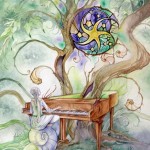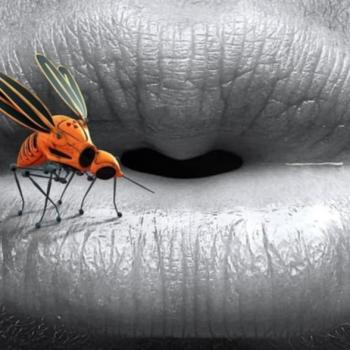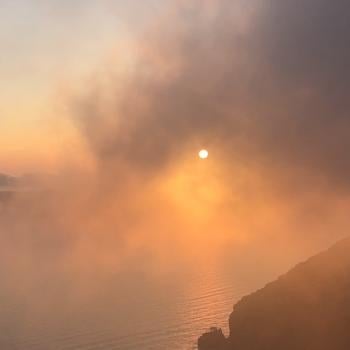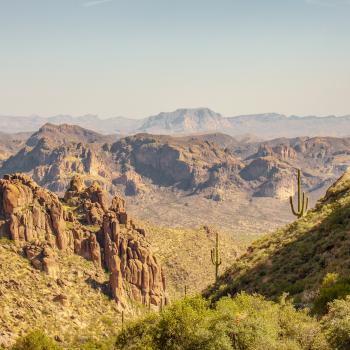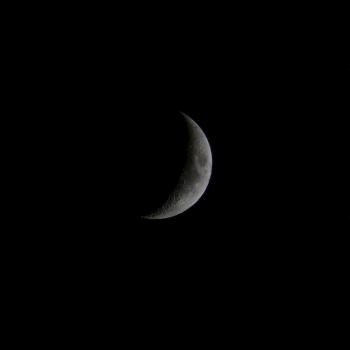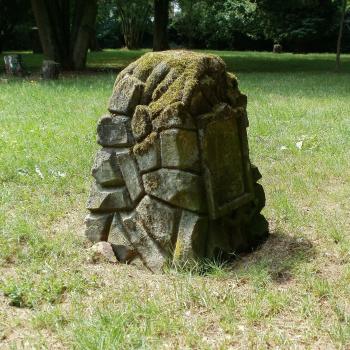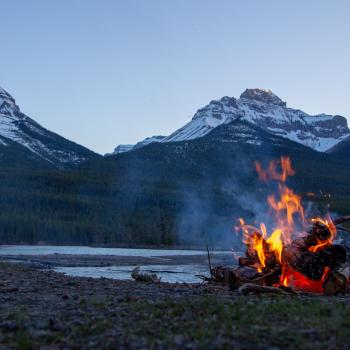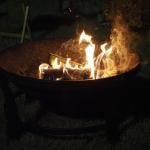Every Wednesday, we’ll go over basic concepts and important practices in the Otherfaith. Join us every Wednesday to learn more about the gods and their religion.
(Though I will do my best to present the Basics series in a logical order, they won’t be perfect. The Otherfaith is only four years old, after all, so we’re a little rough along the edges. If you have suggestions on how or what material should be presented, please speak up!)
We’ve met the gods – but what is their religion? In this post we’ll be exploring what the Otherfaith is and where it comes from.
Overview
The Otherfaith is a modern polytheistic religion focused on modern life, new gods, and new spirits. We are a spirit-aware religion seeking to bridge humans with the holy landscape around them and unite them with their spiritual neighbors.
We were born four years ago from the Pagan and polytheist communities, out of a group of youth that got together and decided to try to craft the change we wanted to see in our communities. We long for an urban-friendly faith grounded in polytheism and animism, emphasizing worship, and began weaving together what would grow into the later Otherfaith. At the same time, we reached out in search of new gods and spirits who might wish to be involved in such an endeavor. Through prayers, journeys, and divination, we found such gods.
The spirits that came to us were faeries, entities dwelling on the threshold, tied to this world and their own, and so were the gods. It was from this connection that we decided to call ourselves the ‘Other People’.
the Other People
Our name has tripped up a few people in the past, so let’s take a brief moment to explore it a bit more.
Other People, at its core, simply refers to the people of the Otherfaith – similar to how ‘Christian’ is the word used by those practicing Christianity. It does not imply or mean one has to be initiated by the spirits or receive a mystical call from the gods. You are one of the Other People when you dedicate yourself to our gods. (Not as scary as it might sound!)
Worshipers of our gods can call themselves an Other Person, one of the Other People, and/or a follower of the Otherfaith. All are correct. Specific labels like ‘devotee of the Ophelia’ have more restrictions and who and how they are used.
Our name is tied to our connection to the spirits in another way, beyond just being the origin of the phrase ‘Other People’.
Relationship to Gods & Spirits
The Otherfaith is a religion – we pray, we establish shrines, we have myths, we give honor to gods. We give honor first to the Clarene, then her god-family, then the Greater Spirits of the Otherfaith, then other faeries after that. (There isn’t always a clear ‘this-then-that’ when it comes to devotion, however. We’ll get into that as we explore what the Otherfaith looks like in daily life.) Our relationships with them begin with devotion and worship.
They are our teachers and mentors, our mothers and fathers, our siblings and cousins. We are intertwined with them and they with us. The gods are great, and they see what we cannot see, perform great acts that we cannot, and guide our lives in incredible ways – but they also make mistakes. We do not view our gods as infallible, nor are they always ‘good’. We strive to understand the entirety of who the gods and spirits are, as much as we can see of them, rather than shoehorning them into what we want them to be. They are complex entities with agency that crash against our lives as we do theirs – it’s just that they’re so big they leave very lasting impressions.
Being one of the Other People means we do our best to approach the gods not only in adoration and reverence, but in acceptance. They open their arms to us, and we open our arms to them (or, sometimes, fall into them, desperate and longing). We learn from them, seeking them in all parts of our lives. We become Other – we become that which dwells on the threshold.
Our gods do not just dwell in the space between Faery and men, but between this world and the world they have dreamed. When we journey to the West, our sacred otherworld that is just sideways of ours, we see soaring planes and ships, painfully tall skyscrapers, expansive fields of fruit and grain, wildlands where creatures of fur and fang dwell, cramped streets where those with wires for veins speak to thousands of people all at once. We dream in this world of the gods of what our world could be, what our future could hold. And we see that on the precipice of that future, ‘there lays a terrible atrocity‘.
Part of what the gods dream, and part of our relationship with them, is understanding how to handle that terrible atrocity – which we achieve by looking at the past (where we can see what happens when we do not acknowledge that terrible atrocity, most often in the name of ‘progress’) and by taking steps to ensure that this world, this place, this land that is tied to our gods, continues on. Part of living in right relationship with these gods, part of being an Other Person, is dwelling in the in-between and coming back with actions and ideas so that we can continue on – whether that means heavy activism work or small daily acts to try to bring us back into right relationship with the land we live on.
(So, we have quite an ‘environmentalist’ and ‘social justice’ streak in our faith.)
The Otherfaith is about worship and ritual – but it is also about hearing the wishes of the gods, so that we might work alongside them in dreaming and living.
*
Wednesdays are Otherfaith Wednesdays on Tumblr, where you are invited to ask any kind of questions about the religion, the gods, or myths that you have. And for those who a little shy, anonymous asks are on.
We are also holding an Otherfaith discussion group every first Sunday of the month. Click here for more details, and send me a message or leave a comment if you would like to join!
[Want more of the blog? Follow through RSS to receive consistent updates!]

